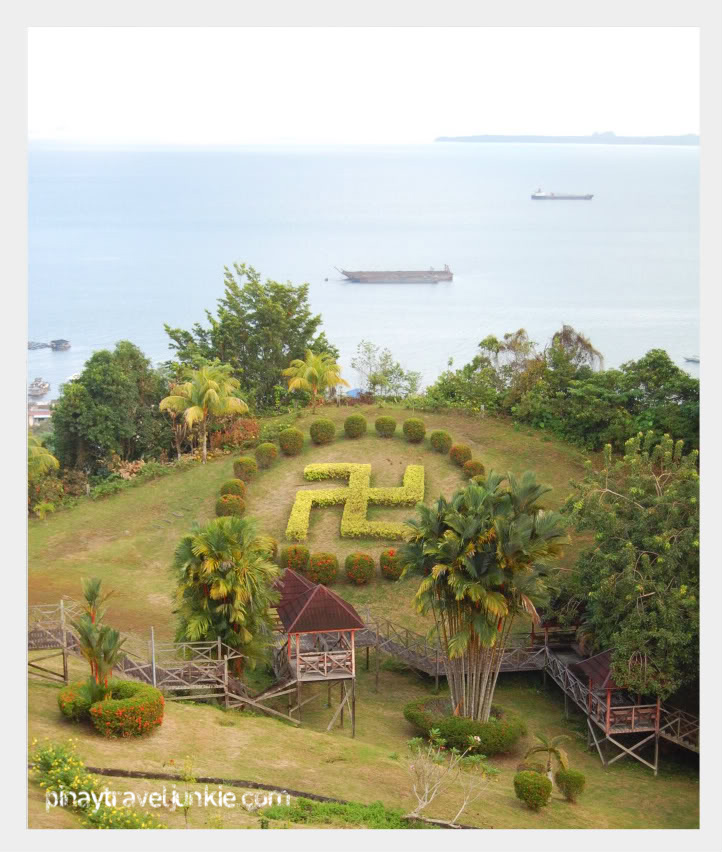
Sandakan was once under the governance of the Sultan of Sulu. Imagine if the Philippines still owns the resource-rich east coast of Sabah, the economical gain must have been heaps. No wonder our ol’ dictator President Marcos set up an operation to take back the land, which unfortunately led to the Jabidah Massacre – but that’s another story.
The city center is half, maybe only a fourth of Kota Kinabalu’s. Everything we needed was just a short 10-20m walk from our accommodation. Money changer, bus stop, supermarket, and cheap local restaurants. Most tourist sights though are further afield, and cannot be reached without hiring a cab. Depending on how many places you visit, a taxi will cost you RM10-30.
Fortunately for us, our Couchsurfing host Calvin was free for the day and offered us a ride. He’s no history expert, but he has lived in Sandakan his whole life – and that’s what matters to us.
He met up with us at Sandakan Harbour Square B&B where we were checked in and led us on foot to Sandakan’s new three-level central market which is also just by the water. Several shops selling fruits, veggies, fish and even garments can be found here. A souvenir shop sits right by the entrance on the ground floor. Their merchandise are unique and of top quality, but yes, expensive. We walked out of the shop empty handed.
Calvin asked us where we wanted to go next. I had a couple of places in mind but I let him construct the itinerary for us. Shervin and I didn’t want him to take us somewhere too far off.
We jumped in his Proton right hand drive car (Proton is a Malaysian vehicle manufacturer) which was parked nearby and were taken to The Parish of St. Michael and All Angels. It is an Anglican church built way back 1897, which makes it the oldest granite church in Malaysia. We were not able to see the interiors for it was closed when we got there.
Next we went to Sam Sing Kung Temple. Completed in 1887, it is the oldest building in Sandakan. “Sam Sing Kung” means three saints temple . And these three saints are: Emperor Min Cheong, Tin Hou and Kwan Woon Cheung.
Calvin is of Chinese descent but studied in a private Catholic school (and he admitted not being religious like us) so he isn’t very familiar with temples. Outside the building are several unlit incense coils hanging. Bits of paper with Chinese writings are attached to each coil. Calvin reckons they’re prayers, or names of loved ones the devotees are praying for.
The temple is quite small. When we entered, no one else was inside except us and two caretakers. Taylor Swift’s “Love Story” was softly playing on their radio. Not too solemn, don’t you think? Before we left, we slipped a small amount in their donation box and whispered our own invocations.
Our fourth stop was a park-slash-viewpoint dedicated to Datuk Chong Tain Vun, former Sabah Minister for Communications and Works. The park doesn’t offer anything special, and there are a lot of fierce-looking stray dogs that give you death stares when you come close. Still, it was nice to be there. Peaceful (except when the dogs bark!) and breezy. I can picture families picnicking at the gazebos on weekend afternoons, and lovers staying behind ’til late night.
Though we enjoyed hanging out at the park, we didn’t stay long. Once we got past the scary dogs again we quickly scrambled in the car. Calvin drove back to the city center and proceeded to the Agnes Keith House. Yes, it’s a house once owned by someone named Agnes Keith. She was an author married to a former curator of the North Borneo Museum. She wrote a trilogy about her life in Sabah, pre and post World War II.
Nobody seems to know her now (I hope I could find her books someday), but the house is worth the visit. There’s an admission fee of RM15 for non-Malaysians (RM2 only for locals), and the house is open from 9:00 AM-5:00 PM.
A hop away is the English Tea House. Not only do they offer fine teas, but also snacks (pastries) and full course meals. A bit pricey though, sandwiches are at RM20 and main courses at RM35-RM60. While waiting for your meal, you may play a game of Croquet on their spacious manicured lawn. If you’re feeling fancy (unlike us), it’s the place to be!
Finally, our last stop is the Puu Jih Shih Buddhist Temple. It’s situated on a hilltop overlooking Sandakan Bay. Tourists are allowed inside but remember to dress appropriately (though I saw locals wearing shorts and mini dresses). This temple was completed in 1987, and is dominated by the colors gold and red.
Before taking us home, Calvin treated us at a famous burger joint called Ramly. Ramly is actually a brand of burger patty sold in Malaysian supermarkets. Someone just came up with the idea years ago of selling these patties in burger buns with ketchup, mayo and coleslaw – very similar to the Philippines’ Burger Machine! They only come in two variants, chicken and beef. And if you’re feeling very hungry, you can order with egg (egg is scrambled with a few drops of Knorr Seasoning). A heavy snack for only RM4.50!
Warning: Do not come famished. The wait is 30 minutes to an hour! That’s how popular it is. Well they’re totally undermanned too, there’s just one cook (who works on a small fryer) and one helper accommodating 8+ people at a time.
After almost an hour and a half, we got our orders. We went to Restoran Habeeb across the Ramly stall to order drinks and also so we could sit down. Our verdict? Sloppy and greasy but we loved it! The buns are fresh and the patty is thick. I miraculously finished mine and felt so bloated.
And that’s when I felt tired all of a sudden. It’s been a long day. Calvin’s such a great host, and he knows his town very well. We couldn’t thank him enough. After our late afternoon snack, he drove us around the outskirts of the city center for another half an hour to check out Sandakan’s bars. We spotted a club named Faces, with a big tarp in front showing its featured band “Cebu Star”. Obviously Filipino, ei?
We were back at our accommodation around 7-ish. No need to eat dinner anymore for that Ramly burger filled us up to he brim. Time to rest. Tomorrow, we explore Eastern Borneo’s rainforest.

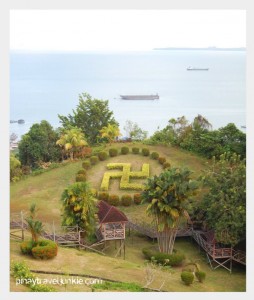
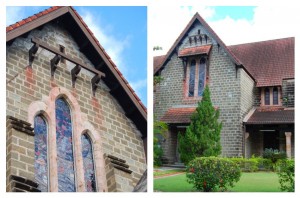
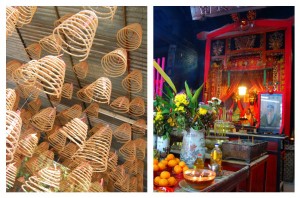
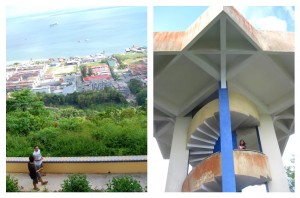
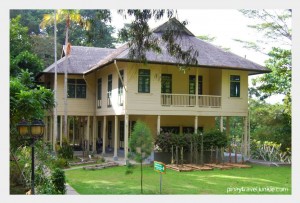
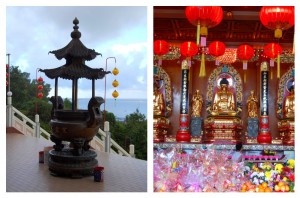
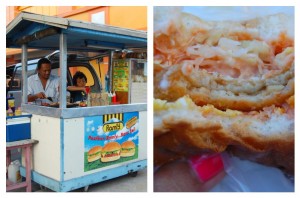
Jews in NYC hate it when they see swastikas. Reminds them more of Hitler than a religion.
Not just for Jews, I am pretty sure it is the same across the globe. And so sadly, (me thinks) not a lot of people care about the true religious meaning of it anymore.
Malaysia, this is my first target country If I am going to do International Travel… kahit once lang sah buhay koh sana… cguro mga a year or two pah bago matupad…
Of course it will happen! Be optimistic. I am sure as long as you put your heart into something, you’ll achieve your goal. And once you start traveling overseas, you’ll be addicted to it. Haha!
arze arce, i couldn’t agree with her more. once you start traveling you don’t want to stop anymore. i always say if there’s a will, there’s a way! Good Luck!
Jews are not Shemites but Ashkenazi Jews, Khazars or wandering Jews. They hated the Arians and even Filipinos and the rest of use are just slaves to their minds.